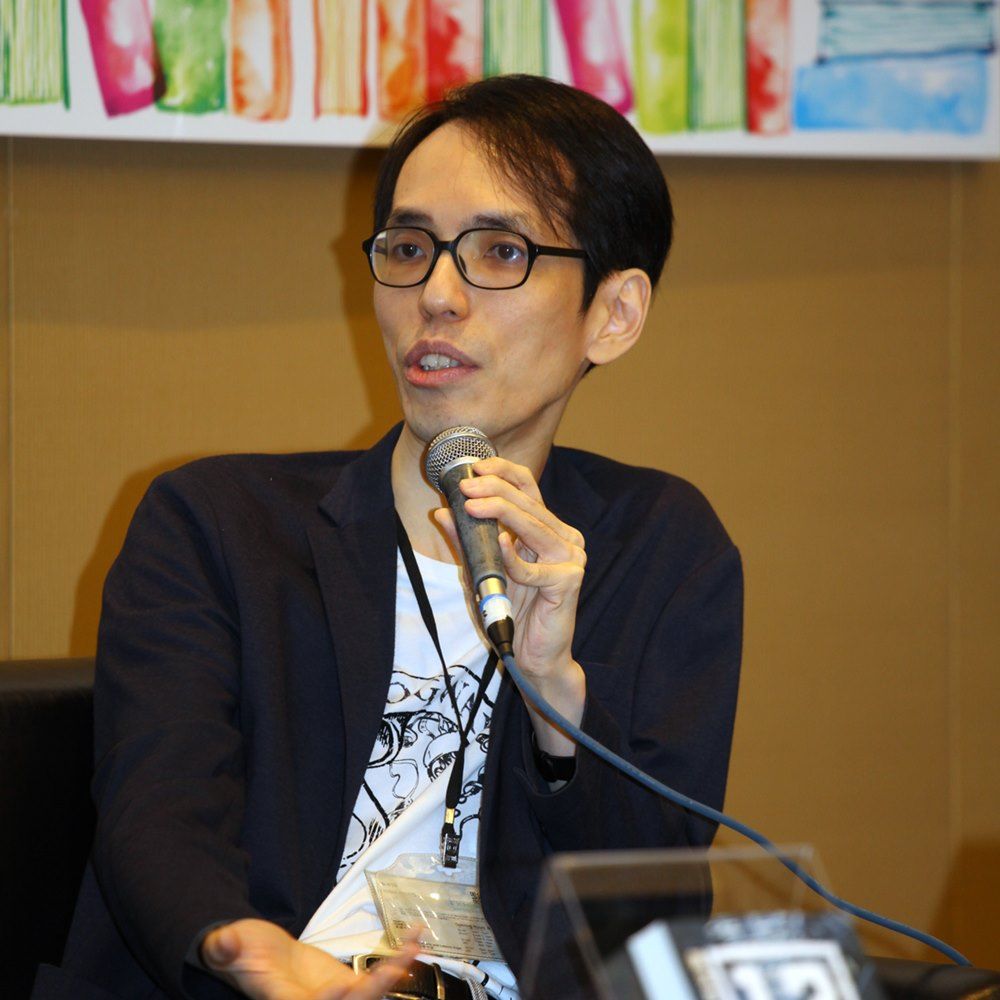
臺灣非營利專業書評媒體。Openbook編輯部將提供原生報導,文化觀察,人物採訪與國內外重大出版消息。 https://linktr.ee/openbooktaiwan
The development of mystery novels is based on readers' search for social truth: Interview with Chen Haoji

Author| Tao Peikang (Executive Editor-in-Chief of CUP Magazine)
Suspense and mystery novels are a large category of popular literature and genre novels. The series such as Sherlock Holmes and Keigo Higashino are all popular works. However, Chinese mystery novels have never been prosperous, and their creators are rare. Just because it's rare does not mean nothing, and Hong Kong writer Chen Haoji is one of them. He has gradually become known as the winner of the Shoji Shimada Mystery Fiction Award, and even won the "2015 Taipei International Book Fair Award", becoming the first Hong Kong person to win the award, and he has received more attention in Taiwan than in Hong Kong.
How did Chen Haoji occupy a seat in Taiwan's literary circles along the way? The story must begin by overcoming the differences in word usage between Hong Kong and Taiwan.
"When I was writing "Forgotten Criminal Police", I encountered a problem. Should the low-level police officers call the high-level police officers "Senior Brothers" or "Senior Seniors"? Be careful not to write words that only people in Hong Kong can understand. But of course, since the story is set in Hong Kong, it is necessary to retain a certain level of Cantonese flavor, so it is necessary to consider which words to use and which to discard.”
Reading "13·67", the protagonist Guan Zhenduo is called "Uncle Du" by his peers. This Cantonese-style language is related, and it is difficult for Taiwanese readers to savor it together, but Chen Haoji will not deliberately delete it, so that the two Local readers have different experiences. Taiwan does not resist writing in Cantonese, and he credits it to Hong Kong dramas: "Interestingly, Taiwanese readers are quite receptive to Hong Kong authors. I think this is due to the fact that Hong Kong dramas and films produced in Hong Kong have been popular in Taiwan for many years. Just don't write all Cantonese. , they all accept it.”
➤Promotion of Chinese mystery novels is difficult
To write in a language that you are not good at and to gain favor in a different place, the effort required is beyond your imagination. Why work so hard? Chen Haoji believes that Taiwan's publishing house system is perfect, and many publishing houses also list submission instructions. At least his suspenseful reasoning works do not need to be reviewed by editors of love or finance books. More importantly, Taiwan's literary awards are like the number of sands in the Ganges, allowing him to have countless opportunities to submit manuscripts. These soils are definitely lacking in Hong Kong.
"I think the problem Hong Kong faces is not the lack of interest in mystery novels, but the lack of interest in written books themselves. The bookstore on the second floor is gradually disappearing, and the publishing house is focusing on publishing financial books, arithmetic books, and beauty books, which is also worrying to read. It's unnerving!"

Chen Haoji sighed so much. His feeling of winning the "Taipei International Book Fair Award" that year was: "The literary nature of Hong Kong popular novels is often ignored by readers or the Hong Kong publishing industry. I hope that my award this time will encourage more Hong Kong writers. Create popular novels." He said that to promote Hong Kong's reading ethos, more literary and popular novels seem to be one way out.
Paradoxically, because Hong Kong's publishing industry cannot compare with Taiwan's in terms of system, market, etc., the influx of translated books (especially novels) of Taiwan's version into Hong Kong has made Hong Kong readers unknowingly accept the Taiwanese version. text and style. This may be an opportunity, because Chinese mystery novels can be circulated in this "mutual understanding" situation, but why haven't they emerged because of this?
➤ Speculative fiction relies on society's desire to find the truth
"The mystery novel market in Europe, America and Japan is quite mature, with each other's translations for sale. In contrast, Chinese reasoning has experienced serious development faults due to political factors. In the 1930s, China also had a reasoning fever, such as Cheng Xiaoqing and Sun Leohong. He has written many high-quality detective novels. There are also many works in Taiwan during the Japanese occupation era, but after the civil war between the Kuomintang and the Communist Party, the Cultural Revolution, the martial law in Taiwan, etc., mystery novels have almost disappeared.”
Chen Haoji pointed out: "The West experienced a golden age of reasoning during this period, developing from classical detective reasoning to crime novels or cold-hearted detective novels, establishing a very clear genre of literature. After Japan's defeat in the war, it was originally in the era of militarism. The suppressed reasoning literature can also be greatly liberated. So far, it has been baptized by the Benge School, the Social School and the New Bengue School, and the works are quite mature. The Chinese reasoning is younger than the above two, just like a country that has been industrialized for more than ten or twenty years makes cars. But you have to compete with Japanese cars and European cars for customers. For the same price of a book, would you choose a translated novel with an interesting story and mature style? Or stick to the principle of "supporting the local" and risk landmines How about buying a Chinese novel that you don’t know if it’s good or not? This is the helplessness of the free market.”
Moreover, reasoning is a process of finding "truth". Matsumoto Kiyotaka and Zhang Jian wrote "Japan's Black Mist" based on reality. The best footnote is to seek social truth through reasoning. "If a society is thirsty for knowledge and truth, mystery novels Naturally, it will sell well. When everyone thinks, "It doesn't matter what the truth is," then no one can use any method to catch people's reasoning." No wonder the Cultural Revolution, martial law in Taiwan, when there was no truth, and now Hong Kong...
➤Hong Kong speculative novels in recent years
Even so, Chen Haoji is optimistic about the prospects. First, more and more novels are being turned into film and television. He, for example, is Gillian. The Chinese version of Gillian Flynn's "Control" was published in 2013, and it is said that the sales were mediocre, but by David. After Fincher made a film of the same name (Hong Kong translation: "The Crime of Disappearance"), the Taiwanese publishing house immediately changed jobs. Affleck's cover came back and it was on the bestseller list.
Secondly, although Chen Haoji's mystery novels cannot create metamorphosis like Edogawa Ranpo, he will try to create different types of mystery novels. "The Great Magic Search Line" is a fantasy light novel, applying the fantasy world of swords and magic to package the reasoning story of serial killings. In addition, there is also a horror novel "Magic Insect World" disguised as a mystery novel, and another novel "STEP" adds science fiction elements and puts the background in a near-future inference story.

Even though Chinese mystery novels have not been able to establish themselves for the time being, they have gradually become popular. Chen Haoji recommends mystery novels from Hong Kong and Taiwan, such as Shimada Shoji's mystery novel award-winning work "Virtual Street Drifting" (Mr. Pet), and the third joint first prize "Reverse Abduction" (Wen Shan). Wen Shan is a Hong Konger who immigrated to Canada. "Reverse Abduction" is a mystery novel with business as the theme and half a person died. Another work "Store Manager, I Have Love Trouble" is packaged with the theme of love. It may attract many readers who do not read mystery and read only romance novels.
In recent years, Hong Kong also has excellent reasoning works worthy of attention: "Chen Chainsaw's "The Great Harvest" and "Allure", the stories follow the line of social reasoning, are very good works. In addition, Hong Kong science fiction writer Tan Jian also wrote some cross-sectional works. A type of reasoning work, his "Graster Murder" combines science fiction and reasoning, but unfortunately only the simplified version is available."

➤ Inference works that draw attention to the real world
At the end of January 2019, Chen Haoji released his short and medium collection "Diogenes Variations" at the same time in Hong Kong and Taiwan Publishing House (Hong Kong by Lattice Box Studio, Taiwan by Crown Publishing). Assemble 17 works of different styles in his 10 years of debut, including suspense, reasoning, horror, fantasy and science fiction, including his award-winning and unpublished works.
Chen Haoji entered the world from Taiwan. Some people say that he has already made his own way. Do you still need help from Hong Kong people? It is true that foreign media visited him more than Hong Kong media, but he still had Hong Kong in his heart. In addition to the two novels with Hong Kong police as the theme, in the postscript of "13·67", he specifically mentioned the Hong Kong place in the book, hoping that Taiwanese readers can go there and read it and translate it into French, Italian and English. Afterwards, you can even appeal to readers around the world to focus on the little corners of the world.
Sometimes getting the world's attention doesn't necessarily have to rely on hundreds of thousands of people taking to the streets. Quietly writing a story that catches the world’s attention is a form of collusion with foreign powers, right? ●(( The original text was first published on the OPENBOOK official website on 2019-02-18))


Diogenes Variations <br class="smart">Author: Chen Haoji Publishing House: Hong Kong Lattice Box Studio (Part 1) / Taiwan Crown Publishing (Part 2)
About the Author Chen Haoji <br class="smart">Graduated from the Department of Computer Science of the Chinese University of Hong Kong, overseas member of the Taiwan Reasoning Writers Association. In 2011, he published "Forgotten. Detective" won the first prize of the 2nd "Shoji Shimada Mystery Fiction Award". His masterpiece "13.67" reached a personal peak, not only won the 2015 Taipei International Book Fair "Book Fair Award", Eslite Bookstore "Reading Professional Award", the first "Hong Kong Literary Season Recommendation Award", but also included Weekly Bunchun's Top 10 Mystery Novels and Detective Novels Research Association's Top 10 Natural Mystery Novels won the first place, this mystery novel is really amazing, the second place in the top 10 mystery novels, and the booklog overseas novel award, setting a Chinese mystery novel in the Japanese publishing industry. Unprecedented record. The book has sold copyrights in more than ten countries including the United States, Britain, France, and Italy, and will soon be adapted into Chinese and Korean films and series. He is also the author of "The Moment of the Goat's Grim Smile", "Inside the Net", "STEP" (co-authored with Mr. Pet), "Dark Emissary" (co-authored with Gao Pu), "Survivor", "Balloon Man", Books such as "The World of Demons" and "The Great Magic Search Line".
Like my work?
Don't forget to support or like, so I know you are with me..
Comment…